Snake plants are toxic to domestic pets such as cats and dogs, if they ingest the toxic snake plant. They would show gastrointestinal issues such as nausea, diarrhea and vomiting once they ingest them. If they consume them in large quantities, it could be even lethal for them.
It could be mildly or non-toxic to humans. However it is better to keep these plants away from humans and especially from kids.
Furthermore, if by chance both humans and your pets chew and ingest the snake plants, chances are that there could be severe allergic reactions.
Consequently, there would be swelling of oral cavity tissues and esophagus. Moreover, there could be severe repercussions such as dermatitis also which is kind of an irritation in the skin.
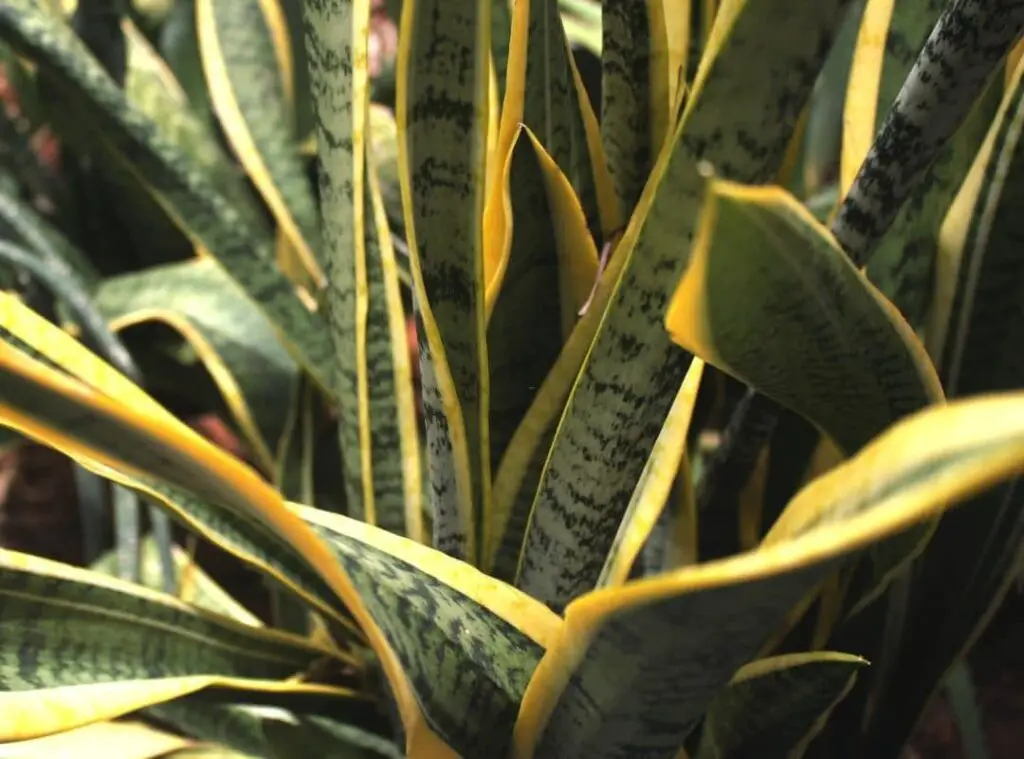
Which part of the plant is toxic?
Snake plant or mother of tongue plant is endemic to Asia and to Africa. It comprises evergreen leaves which usually tend to grow straight and sword shaped. They are very popular among gardeners due to its unique beauty and easy maintenance. Further some people have even used this as a medicinal plant as well.
When considering the toxicity, You could regard the entire snake plant as toxic. In fact, the whole plant contains a toxin called Saponin . In addition to that, it could also consist of organic acids. Therefore, you should be vigilant when handling it.
Saponin is included in the leaves as well as stems of snake plant. Moreover, flowers of the snake plant could be poisonous too. In addition to that, the berries they produce very infrequently, also would be harmful. Do not use them as a fruits.
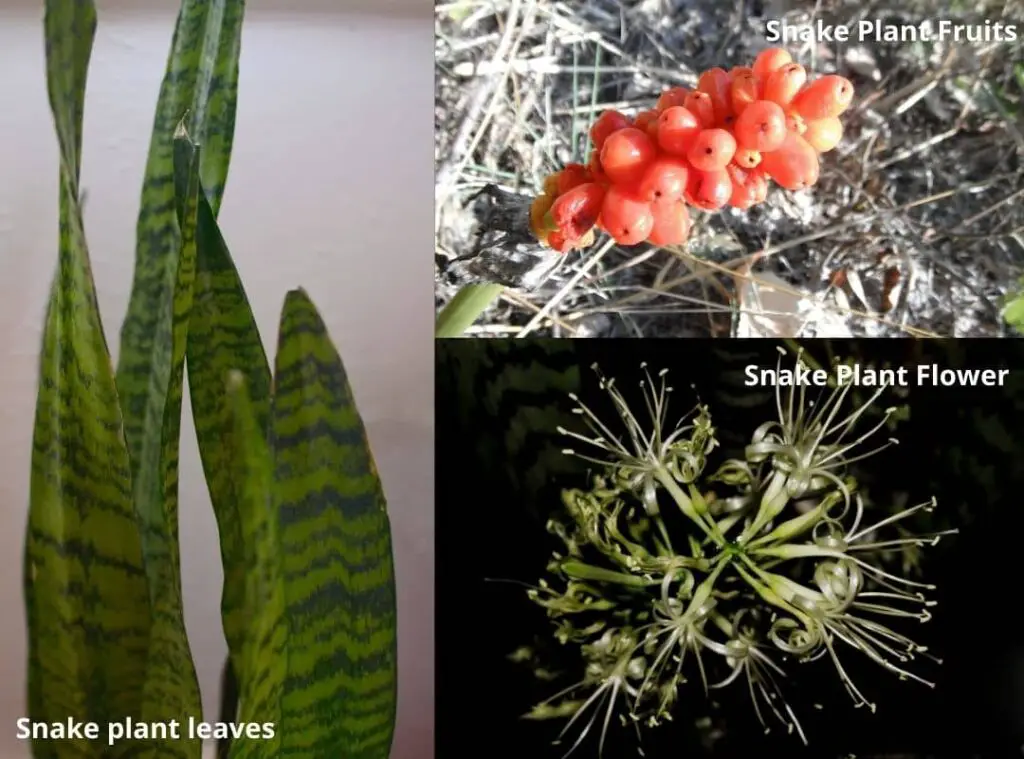
Why snake plant is toxic
As aforesaid, Saponin is the organic chemical which causes the toxicity of the snake plants. Saponin usually works as a natural insecticide and as a fungicide.
Moreover, it safeguards the plant from the microbes as well. Furthermore, saponin is the reason for the snake plant’s bitter taste.
Even though this chemical assists the plant to protect from insects and from fungus attacks, it could harm humans and domestic pets if by chance they consume it.
Apart from that, the plants juice could also affect skin irritations. You could call this condition dermatitis. Once someone goes through this condition, he/she could even get rashes in their skin .
Furthermore, if you ingest this in big quantities, it will cause worse repercussions such as severe skin irritations, swelling of the oral cavity tissues and esophagus.
Animal affected by toxic snake plant
Snake plants could badly affect on your furry domestic friends such as on Cats and Dogs
Is snake plant toxic to touch
You could touch the snake plant without any issue, and it is safer to do so. Toxin saponin could only affect when you ingest it. Having said that, once you get in contact with the plant’s sap it would cause skin irritation.
As such, best is to protect yourself before you are dealing with this plant. You could ideally wear a pair of gloves while working with the plant.
Snake plants are comparatively safe. However, they could be poisonous if domestic pets such as cats and dogs ingest them.
They would show gastrointestinal issues such as nausea, diarrhea and vomiting once they ingest them. If they consume them in large quantities, it could be even lethal for them too.
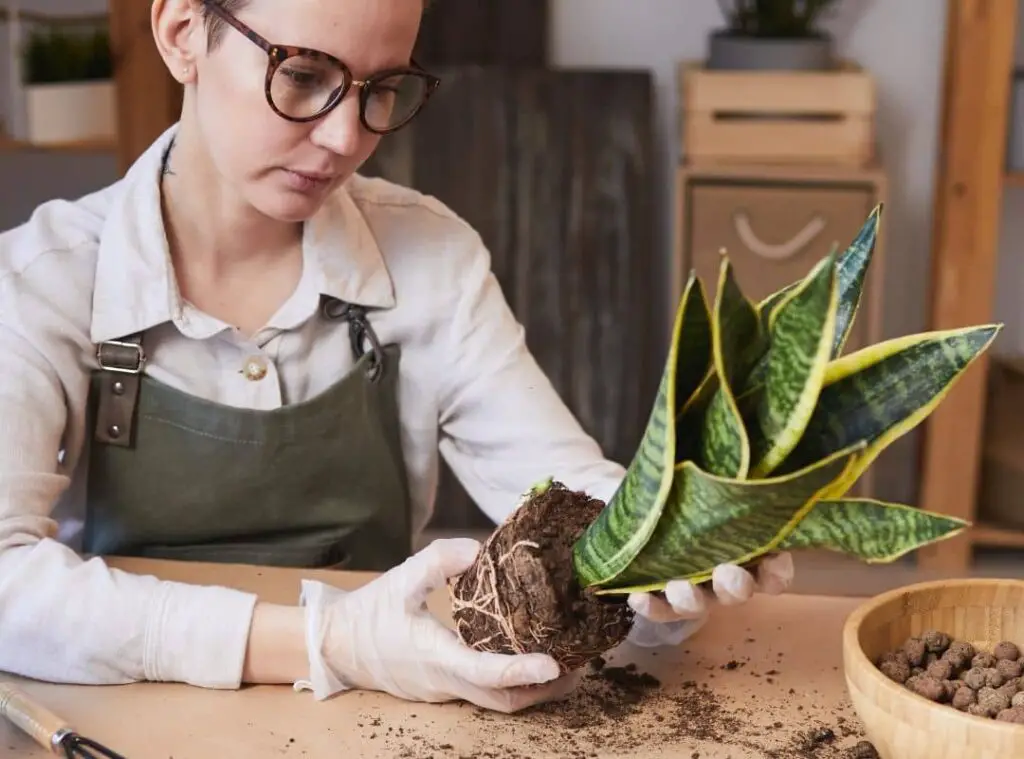
Symptoms of snake plant poisoning
If your pet ingest a snake plant they may show one or few of the following symptoms; Vomiting, diarrhea, nausea, depression, pain and the discomfort in the abdominal area, excessive drooling, not having appetite, swelling in tongue, mouth, kips, throat etc., laziness etc.
However, it is always best to consult your vet to get medical advice in this circumstance.
How to confirm the snake plant toxicity
First do a thorough search if your pet has the above symptoms, you could look for remains of plant leaves in their mouths.
Further look for bite marks on the sake plant leaves. However best is to bring your pets immediately to a vet doctor.
When you bring the pets to the vet, ensure that you take all the full history of the pet and that will assist the vet to identify the most probable complications and the risks.
Moreover, ensure that you inform your vet on the plants which you grow indoors and outdoors so that the vet will have a clear understanding.
After all, the vet will conduct a physical examination to identify the exact condition to identify whether there are any complications.
Vet will conduct tests such as blood tests, urine tests, temperature checks etc. Based on those, the vet will decide on their organ’s functionality and on their general health condition as well.
Treatment for snake plant poisoning
When it comes to the treatments, it will mainly depend on the symptoms of snake plant toxicity of your pets. Based on those, the vet will decide on the mode of treatment.
In case if your pet has not vomited after he consumed the snake plant, the vet may try to stimulate the vomiting. From doing that, he may intend to take out any left plant pieces in the stomach.
In addition to that, he could also administer the activated charcoal treatment which absorbs any remaining toxin before the body absorbs it.
On the other hand, if your pets are vomiting and going through diarrhea, they could start conducting fluid therapy and electrolytes. Fluid would be useful here as it could correct any dehydration your pets are going through.
Consequently, it will also assist the plant to flush the poison from the body as soon as possible in the best possible way.
Moreover, there could be extra therapeutic medications too . In case your pets keep vomiting for too long, he could even administer an antiemetic.
Moreover, if the pets are going through issues in gastrointestinal areas, the vet will provide medication in accordance with that. He could determine further therapies depending on the pets’ symptoms.
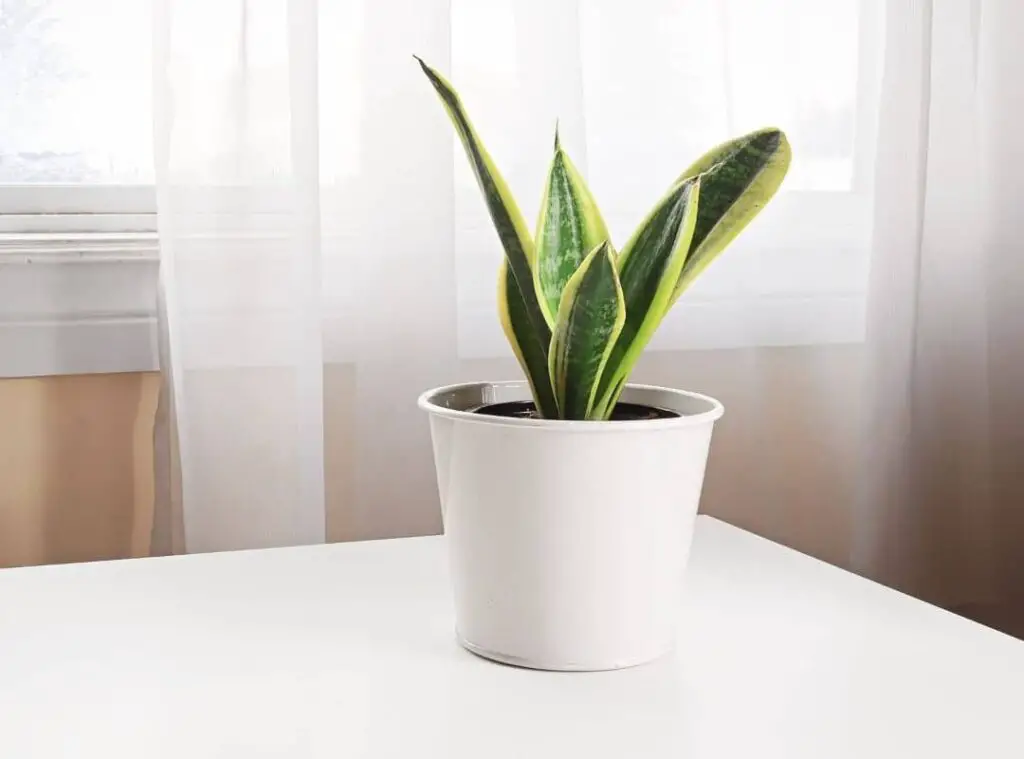
First aid for snake plant poisoning
Once you are confident that your pet has consumed the snake plant, ensure that you do not let it eat anymore. If you could spot any left-over leaves in the pet’s mouth, take them off immediately.
Next get in touch with your local vet or even with an animal poison control unit. In case you cannot contact them, you should get the instructions from local human poison control centers.
Moreover, ensure that you know the species name of the snake plant which your pet has consumed. Best is to take a piece of the plant leaf when you visit the vet.
You should inspect how much size of the plant your pet has consumed. It would be better to have an idea on the exact timing.
Refrain from trying to make your pets vomit without the vet’s advice. Furthermore, do not apply any traditional home remedies on them too. Finally, make sure that the pets drink more and more water to avoid them suffering from probable dehydration.
What you you should do at hospital after snake plant poisoning
There are not any particular and exceptional treatments which you could do for the pets who consume snake plants. they would sometimes require a brief stay at the hospital.
Chances are that they could first remove the plant remaining in the mouth by applying water in the oral cavity.
They could further do, Emesis and gastric lavage to vacant the stomach to avoid digesting the poison anymore. Emesis is a process of inducing vomit and gastric lavage is a stomach pumping activity.
Moreover, they would use intravenous fluids also and certain medication to treat them whilst they are at the hospital. They will further observe the pets open airways too.
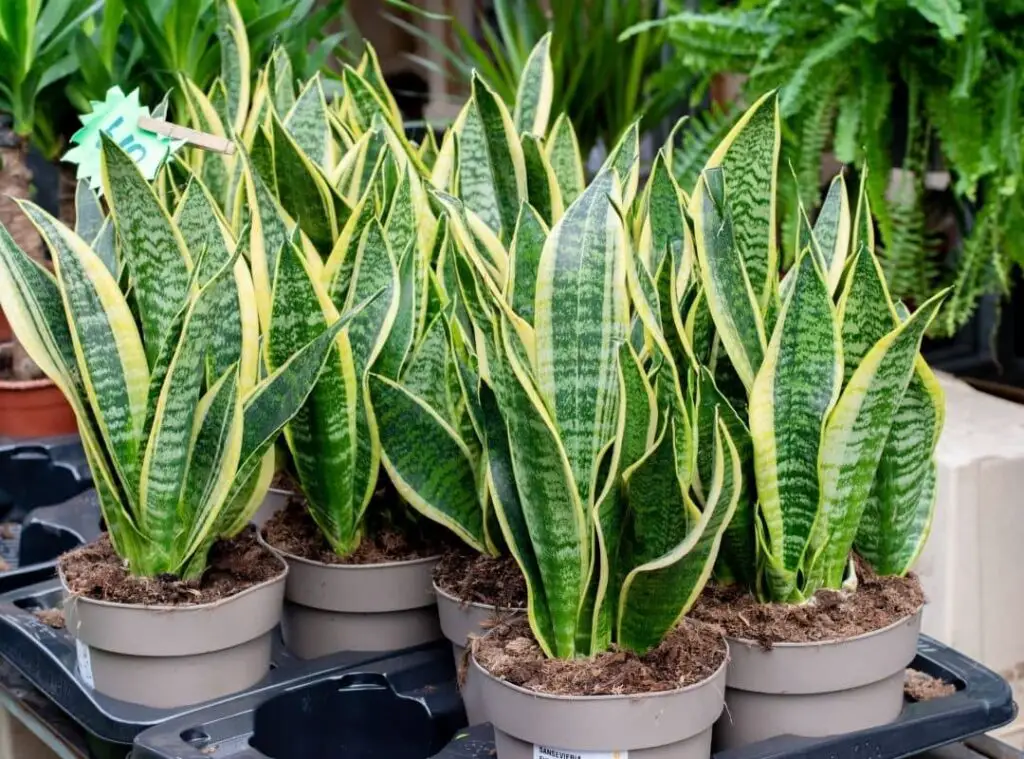
Are snake plants toxic to humans?
It could be mildly toxic for humans and could not be toxic at all. However it is better to keep these plants away from humans and especially from kids.
Furthermore, if by chance you or your child chew and ingest a part of snake plant, chances are that there could be severe allergic reactions. Moreover, there could be severe repercussions such as dermatitis which is kind of an irritation in the skin.
Precautions you can take to avoid snake plants toxins
Even though it is generally safe to touch the snake plant, since the poison could impact you when only you ingest it, the plant sap could cause irritation in the skin.
You could ideally wear a pair of gloves while attending to its maintenance activities such as repotting.
Since snake plants are famous indoor grown succulent plants, it is always best to place them out of reach of little kids and from your domestic pets as well.
Best is to locate them on a high shelf. Furthermore, if you come across any situation where your pet has consumed the plant and if you could still spot any leftovers in their mouth, remove them immediately and visit a veterinarian as soon as possible.
Furthermore, if you are unclear of anything regarding the poison related matters of animals, you should get in touch with animal poison control center and educate yourself on potential complications and on risks.
Read Next : Important Snake Plant Watering Techniques | 12 Things You Must Consider |
